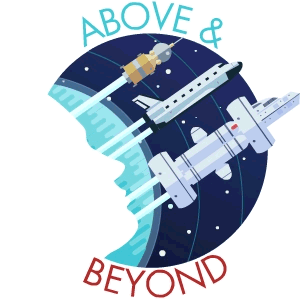

At some point in the coming decade or three, a small group of humans will climb inside a spacecraft, probably called Orion or Dragon.
This crew will look different than the buzz-cut U.S. Air Force heroes of the Apollo program–while most astronauts are still men, more and more are women. They’ll also be scientists, first and foremost, rather than warriors. There’s a chance they won’t all be American, either. Billions around the world will watch as a count ticks down and the spacecraft roars through the atmosphere on top of a rocket, bound for Mars.
The journey, known as a Hohmnan Transfer, will be long and hard–it takes about nine months to get to Mars. The ship will need to carry enough food, water, fuel, clothes, and supplies for substantially longer than that, though. The cosmic ballet of planetary orbits means that the astronauts will have to spend about three to four months on the Red Planet before the heavens align and they can make the nine-month journey home again. Even with modern rocket technology, there is no alternative to our plucky pioneers spending a full 21 months in space. And that’s if everything goes according to plan.
Assuming it does, though, what next? Once we’ve taken our first steps on the surface of Mars, we’ll need to collectively–as a species–decide how to proceed. Will we retreat back to Earth, like we did with the Moon? Or will we strike boldly forth, building settlements on Mars that people can live in for longer periods of time? Do we even have the right to build there, given the mess we’ve made of Earth?
This isn’t a new topic, of course–humans have been discussing it for millennia. Ancient Hindu poetry includes flying machines able to travel into space, while Syrian-Greek writer Lucian of Samosata‘s 2nd-century satire True History describes conversations with alien life forms. Over the centuries, however, our science fiction has gotten closer and closer to fact. Today our guesses at what life might be like for the first humans who live on other planets are the most accurate they’ve ever been.
Here’s a reading list on humans in space that’ll get you up to speed. It covers a wide breadth of sources and opinions on the multi-planetary future of humankind.

“I’ve discovered that half the people would love to go into space and there’s no need to explain it to them. The other half can’t understand and I couldn’t explain it to them. If someone doesn’t know why, I can’t explain it.”
–Sally Ride, interviewed by Lynn Sherr, 2015.

Start Here
The first name you’ll hear today when discussing a future colony on Mars is Elon Musk‘s. For better or worse, his vision for humankind becoming a multi-planetary civilization is the one that presently seems closest to reality. There are several great articles on Musk’s plans for humankind out there (several are below), but our favorite is “Exodus,” by Ross Andersen of Aeon. Here’s an excerpt:
Musk is a private businessman, not a publicly funded space agency. But he is also a special case. His biggest customer is NASA and, more importantly, Musk is someone who says he wants to influence the future of humanity. He will tell you so at the slightest prompting, without so much as flinching at the grandiosity of it, or the track record of people who have used this language in the past. Musk enjoys making money, of course, and he seems to relish the billionaire lifestyle, but he is more than just a capitalist. Whatever else might be said about him, Musk has staked his fortune on businesses that address fundamental human concerns. And so I wondered, why space?
The full story covers every aspect of the man most likely to take us to other worlds.

Then Try
After that, dig into some of the main conversations surrounding the subject in more detail:
- How (and Why) SpaceX Will Colonize Mars
Tim Urban, Wait But Why [38-minute read] - We Can Afford to Go to Mars–Here’s How
Bill Nye, National Geographic [4-minute read] - What Four Months on Mars Taught Me About Boredom
Kate Greene, Aeon [19-minute read] - The 12 Greatest Challenges for Space Exploration
Staff writers, Wired [16-minute read] - As Silicon Valley Lays Plans to Colonize Mars, Researchers Offer a Blueprint for Governing It
Michael Coren, Quartz [6-minute read]

Dive Deeper
Alright, now we’re opening the floodgates. If you’re going on a trip and want to fill your read-it-later client of choice with fantastic writing (in no particular order), then we’ve got your back:
-
Lost in Space Race: Women Denied Proper Place in History
Nathalia Holt, Space.com [5-minute read] -
How Elon Musk Plans on Reinventing the World (and Mars)
Chris Heath, GQ [42-minute read] -
The Audacious Rescue Plan That Might Have Saved Space Shuttle Columbia
Lee Hutchinson, Ars Technica [39-minute read] -
Mars One Finalist Explains Exactly How It’s Ripping Off Supporters
Elmo Keep, Matter [6-minute read] -
Meet the Couple Who Could Be the First Humans to Travel to Mars
Laura Poppick, Wired [10-minute read] -
How Space Exploration Replaced Religion in the USSR
Sasha Rospopina, The Calvert Journal [4-minute read] -
The Economic Viability of Mars Colonization
Robert Zubrin [45-minute read] -
The Real Reasons We Explore Space
Michael Griffin, Air & Space [7-minute read] -
I Saw Earth and Moon in a Single Glance, a Q&A with Al Worden
Avi Solomon, Learning for Life [29-minute read] -
Interplanetary Federalism: Maximising the Chances of Extraterrestrial Peace, Diversity and Liberty
Ian Crawford, The Meaning of Liberty Beyond Earth [40-minute read] -
Out of This World: Why the Most Important Art Today Is Made in Space
Jonathan Jones, The Guardian [7-minute read] -
68 Days Later: Why the Mars One Mission Would End in Disaster
Ian Steadman, New Statesman [3-minute read] -
Mars, Underground
Mark Betancourt, Air & Space [18-minute read] -
The Space Suit You Could Be Wearing a Few Years From Now Is Being Designed in a Small Workshop in Brooklyn
Tim Fernholz, Quartz [13-minute read] -
Life on Mars
Sheyna Gifford, Aeon [16-minute read] -
How Florida Became the Temporary Center of Space Travel
Craig Pittman, Atlas Obscura [8-minute read] -
We Should Treat Earth as Kindly as We Treat Spacecraft
Chris Hadfield, Wired [9-minute read] -
Why Sci-Fi Keeps Imagining the Subjugation of White People
Noah Berlatsky, The Atlantic [6-minute read]

Books
Sometimes it’s nice to get really into a subject with an actual book, and there are plenty to choose from:
- Ariel Waldman–What’s It Like in Space?
- Robert Zubrin–The Case for Mars: The Plan to Settle the Red Planet and Why We Must
- Charles Cockell–The Meaning of Liberty Beyond Earth
- Stephen L. Petranek–How We’ll Live on Mars
- Robert Zubrin–How to Live on Mars: A Trusty Guidebook to Surviving and Thriving on the Red Planet
- David S. F. Portree–Humans to Mars: Fifty Years of Mission Planning, 1950″”2000
- Mary Roach–Packing for Mars: The Curious Science of Life in the Void

Watch Something
Finally, if you prefer to learn in audiovisual form, here are a bunch of themed documentaries and movies you can watch instead:
- “Colonizing the Solar System”
It’d be churlish not to include our own video here. Here’s how we could live on all sorts of other worlds in the solar system–not just Mars.
- “Your Kids Might Live on Mars. Here’s How They’ll Survive”
Stephen Petranek’s TED talk outlines how we’ll make Mars our next home.
- “How Will SpaceX Get Us to Mars?”
An engineering primer on the technology we’ll need to relocate to Mars.
- The Martian (Trailer)
In Ridley Scott’s movie about stranded astronaut Mark Watney (played by Matt Damon), we learn how humankind could subsist on the Red Planet with only meager supplies.
- “Is Space Colonization Our Moral Obligation?”
Finally, Big Think tackles the pressing question of why we need to get off Earth as soon as possible.


How We Get To Next was a magazine that explored the future of science, technology, and culture from 2014 to 2019. This article is part of our Above & Beyond section, which looks at our understanding of the universe beyond Earth. Click the logo to read more.
